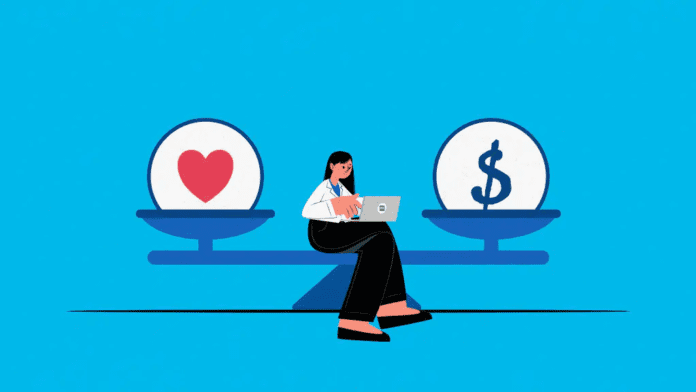When people hear the phrase “work-life balance,” they often envision a smooth routine—leaving work early, spending quality time with family and friends, and still excelling in their careers. However, in reality, achieving this balance is often more complex than it seems.
Work-life balance is not simply about splitting hours between professional duties and personal time; it’s about creating harmony between responsibilities and overall well-being.
In today’s fast-paced world—where hustle culture is widely embraced—finding this balance is essential for mental, emotional, and physical health.
As the renowned country music icon Dolly Parton once said, “Never get so busy making a living that you forget to make a life.” When work takes over every aspect of life, it can lead to stress, burnout, strained relationships, and even health complications.
Overworking doesn’t necessarily translate to increased productivity. Instead, it can drain creativity, reduce motivation, and make it difficult to find fulfillment in both personal and professional achievements.
For many employees, the pressure to prove themselves at work can create an unhealthy cycle of overcommitment. Fear of job insecurity or the need to maintain a strong reputation often leads individuals to prioritize work at the expense of personal time.
Additionally, some struggle with how to spend their free time when they’re not working. Without engaging hobbies or meaningful personal activities, time off can feel unproductive rather than refreshing.
Studies have shown that employees who successfully balance their work and personal lives tend to be more engaged, satisfied, and productive. On the other hand, those who overwork themselves often experience fatigue, lack of motivation, and overall dissatisfaction.
Amos Kiplangat, a young professional, shares her struggle: “Balancing my work and social life has been a challenge. My weekdays are all about work, and by the weekend, I just want to rest and do house chores. As a result, my social life suffers—it’s part of adulting.”
On the other hand, Simon, a staff coordinator at Vizx International Staffing Solutions, explains how he has learned to navigate this challenge:
“My work arrangement is hybrid, so I don’t have to be in the office every day. At first, balancing work and personal life was tough, but intentionality has helped me maintain my relationships. I check in on people, limit social media use, have in-person conversations, and plan specific times for friends and family. Doing this consistently has helped me sustain meaningful connections.”
Psychologist Emmanuel Kioko highlights the role of self-care in achieving work-life balance. He explains that taking care of physical, emotional, mental, and spiritual well-being makes it easier to function in different areas of life.
“Self-care is all about balance. If we can identify which areas of our lives need attention, we can work on them and create harmony between work and personal life,” Kioko states.
He recommends incorporating simple habits like regular exercise, building a strong social support system, and seeking professional help when needed.
“Setting boundaries at work is crucial. For example, having an ‘out of office’ auto-response can help reduce work-related interruptions outside working hours. Additionally, using time management tools like calendars and to-do lists can help organize tasks efficiently, while regular breaks improve focus and prevent burnout,” he advises.
The Evolving Nature of Work-Life Balance
With the rise of remote work and flexible job arrangements, the traditional concept of work-life balance is shifting. More companies are recognizing the importance of mental and emotional well-being and are implementing policies that allow employees to create a sustainable balance between work and personal life.
Ultimately, achieving work-life balance is not about perfection but about making intentional choices that support both professional success and personal fulfillment. Life is not just about work—we work to live, not the other way around. Taking a step back to reevaluate our schedules and priorities ensures that we are not just existing but truly living.







